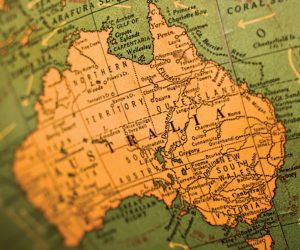Australia excludes gambling activities from R&D tax benefit

- by Admin
- December 18, 2024

The Australian government today (18 December) announced it will exclude gambling activities from Research and Development (R&D) Tax Incentive eligibility from next year.
Detailed in the Mid-Year Economic and Fiscal Outlook, the change comes into effect from 1 July 2025. Gambling, as well as tobacco, will no longer be eligible for the R&D tax incentive in Australia.
The R&D Tax Incentive offers a tax offset for companies in Australia conducting eligible R&D activities. This aims to encourage investment in R&D to help businesses to grow and innovate.
Setting out its reasoning behind the decision, the government said activities related to gambling can “exacerbate addiction and associated harms”. It also noted that activities related to tobacco can increase health risks.
“Excluding these activities will ensure that the government is not subsidising this type of R&D,” the government said. “Activities that are solely for the purpose of harm reduction, such as reducing addiction, will remain eligible to receive support.”
This measure, the government says, is set to increase receipts by AUS$12 million (£6 million/€7.2 million/US$7.6 million) and decrease payments by $8 million over five years from 2023–24.
Legislative change must take place to implement the amendment. Until this, the Department of Industry, Science and Resources and the Australian Taxation Office will continue to oversee the programme.
Responsible Wagering Australia blasts exclusion of gambling
However, the decision faces heavy criticism from Responsible Wagering Australia. The organisation said this creates risks for Australian jobs, innovation and investment.
CEO Kai Cantwell said tax incentives like this should be “sector agnostic” without government interference. By excluding gambling, he said this puts future R&D efforts in the industry at risk.
“The government’s announcement sets a dangerous precedent for how tax policy could be misused in the future,” Cantwell said. “Today it is gambling companies but any industry could be next if it’s used as a bargaining chip or horse-traded in future political deals.
“This slippery slope opens the door for tax policy to become a tool of moral judgment rather than a driver of economic growth.
“If I represented fast food, alcohol, fossil fuels or any other industry that face similar criticisms, I’d be worried. This cherry-picking approach undermines the neutrality of the tax system. It leaves businesses guessing who will be next.”
Calls for the government to reconsider
Cantwell also said the decision risks driving R&D jobs to countries with more supportive incentives. As such, Australia would miss out on R&D and the subsequent economic benefits.
He called for the government to reconsider and collaborate with gambling companies to improve safety for Australians and sustainability for the industry.
“This has been the focus of the industry for years,” he says. “We will continue to invest in consumer protections, with or without government support. Australian technology and innovation are world-leading, driving local growth and being adopted by global companies.
“We call on the government to reconsider this exclusion and engage in meaningful consultation with industry stakeholders to ensure tax policy supports innovation, economic growth, and jobs.”
The Latest News
-
December 18, 2024“A true legend”: family, stars farewell tennis great Neale Fraser
-
December 18, 2024Former world number will miss the Australian Open and may not be back from injury until March 2025
-
December 18, 2024Australia excludes gambling activities from R&D tax benefit
-
December 18, 2024‘Really hard place to bat’: Skipper with strong defence of under-fire top 3, backs ‘selfless’ newcomer
-
December 18, 2024Australian gambling companies barred from R&D tax concessions





